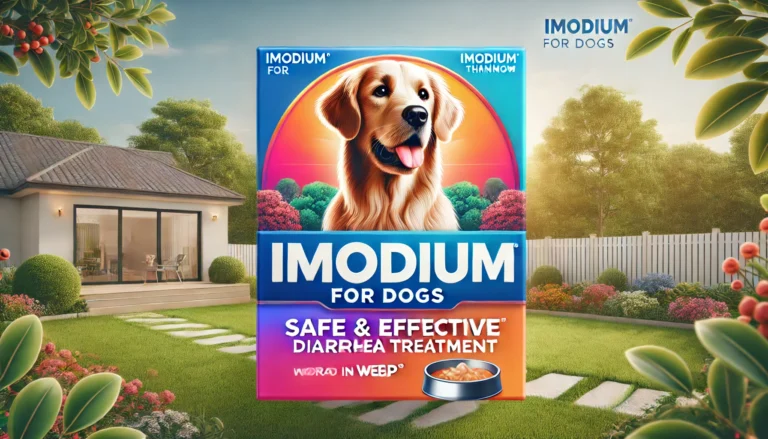Can Dogs Eat Sugar?

Can Dogs Eat Sugar?YES!Sugar is a common ingredient in many of the foods we consume daily. As dog owners, we often find ourselves wondering if certain human foods, such as sugar, are safe for our furry friends. This article explores the relationship between dogs and sugar, delving into its potential effects, risks, and alternatives, to help you make informed decisions about your dog’s diet.
Types of Sugar
Sugar is a carbohydrate that provides energy for the body. There are several types of sugar:
- Natural Sugars: Found in fruits, vegetables, and dairy products (e.g., fructose, glucose, and lactose).
- Added Sugars: Processed sugars added to foods for flavor (e.g., sucrose, corn syrup).
- Artificial Sweeteners: Sugar substitutes that are low or zero-calorie (e.g., xylitol, aspartame).
Sugar’s Role in the Body
Sugar is a quick source of energy, breaking down into glucose, which fuels cells and bodily functions. While humans rely heavily on carbohydrates for energy, dogs metabolize them differently, as their primary energy source comes from protein and fat.
Natural Sugars in Small Amounts
Dogs can tolerate small amounts of natural sugar found in fruits and vegetables. However, their diet does not require added sugars for energy or health. When consumed in moderation, natural sugars may not harm your dog but should be given sparingly.
Added Sugars: A Risky Ingredient
Added sugars, commonly found in processed foods, pose significant health risks to dogs. Unlike humans, dogs’ bodies are not designed to process large amounts of sugar, which can lead to various health complications over time.
Artificial Sweeteners: A Dangerous Substitute
Some artificial sweeteners, such as xylitol, are highly toxic to dogs. Even small amounts can cause rapid insulin release, leading to hypoglycemia (low blood sugar), seizures, or liver failure.
The Effects of Sugar on Dogs
Sugar can have several negative effects on dogs, and it’s generally not recommended to give them sugary foods. Here’s how sugar can impact dogs:
- Obesity: Dogs who consume sugar-rich foods are at risk of gaining weight. Just like in humans, excess sugar can lead to fat accumulation and increased body weight, contributing to obesity. Obesity in dogs can lead to other health problems, such as heart disease, joint issues, and diabetes.
- Diabetes: Dogs that eat too much sugar may develop insulin resistance, potentially leading to diabetes. This is especially true for dogs that are genetically predisposed to the condition. Diabetes in dogs can result in symptoms such as excessive thirst, frequent urination, and lethargy, and it requires lifelong management.
- Dental Problems: Sugar can contribute to tooth decay and gum disease in dogs, just as it does in humans. When sugar lingers on a dog’s teeth, it can encourage the growth of bacteria that lead to plaque and tartar build-up.
- Digestive Issues: Dogs’ digestive systems are not designed to handle excessive sugar. Consuming too much sugar can upset their stomachs and lead to symptoms like diarrhea or vomiting.
- Hyperactivity: Some dogs may experience bursts of energy after consuming sugary foods, similar to how humans feel after consuming sugar. However, this can be followed by a “sugar crash,” causing fatigue, irritability, or anxiety in dogs.
- Pancreatitis: Sugar can exacerbate the risk of pancreatitis in dogs, especially if consumed in large amounts. Pancreatitis is the inflammation of the pancreas and can cause serious health issues, including vomiting, diarrhea, and abdominal pain.
- Xylitol Toxicity: Many sugar-free products, such as gum or candies, contain xylitol, an artificial sweetener that is toxic to dogs. Even small amounts of xylitol can cause a rapid drop in blood sugar, seizures, liver failure, or even death in dogs.

Foods Containing Sugar: What to Watch Out For
When it comes to feeding dogs, it’s important to be aware of foods that contain sugar or sugar substitutes, as many human foods can be harmful to them. Here’s a list of common foods containing sugar that you should watch out for:
1. Candy and Sweets
- Chocolate: While chocolate itself is toxic to dogs, many chocolates (especially milk and white chocolate) contain added sugar, which can contribute to weight gain, dental issues, and other health problems.
- Candy: Hard candies, gummies, or lollipops often contain sugar and artificial sweeteners. Some candies may also contain xylitol, which is highly toxic to dogs.
- Gum: Many chewing gums contain sugar and artificial sweeteners like xylitol, which can cause dangerous drops in blood sugar levels and liver failure.
2. Baked Goods
- Cakes, Cupcakes, and Pastries: These baked goods are often made with large amounts of sugar and fats. They can lead to obesity, digestive problems, and even pancreatitis in dogs.
- Cookies and Biscuits: Many cookies and biscuits, especially those with frosting, are loaded with sugar. These treats may also contain chocolate or raisins, both of which are toxic to dogs.
3. Fruit (in Excess)
- While fruit can be a healthy snack for dogs in moderation, certain fruits contain high amounts of sugar. For example:
- Grapes: Grapes (and raisins) can cause kidney failure in dogs and are best avoided entirely.
- Bananas, Apples, and Pears: These fruits are healthy, but they contain natural sugars, so it’s essential to only offer small amounts to avoid an excessive sugar intake.
4. Yogurt and Dairy Products
- Flavored Yogurts: Many yogurts, especially fruit-flavored ones, contain added sugars. Even plain yogurt can cause digestive issues in some dogs, particularly if they are lactose intolerant.
- Ice Cream: Many ice creams contain high amounts of sugar and can be harmful to dogs due to lactose intolerance, leading to stomach upset or diarrhea.
5. Sauces and Dressings
- Ketchup: Commonly used in fast food, ketchup contains added sugars, and while it might seem harmless in small amounts, it can cause digestive upset or contribute to obesity.
- BBQ Sauce and Sweet Sauces: These sauces are often high in sugar and may also contain other ingredients that are harmful to dogs, such as garlic or onions.
6. Processed Foods and Snacks
- Chips and Crackers: While these foods are typically not high in sugar, some flavored varieties may contain added sugars or sweeteners that are not good for your dog.
- Cereal: Many cereals, especially those marketed as “sweetened,” contain significant amounts of sugar, which are harmful when consumed by dogs.
7. Sugar-Free Products
- Sugar-Free Gum, Candy, and Baked Goods: These often contain xylitol, a sugar substitute that is highly toxic to dogs. Even small amounts of xylitol can cause rapid hypoglycemia (low blood sugar), seizures, liver failure, and death.
8. Fruit Juices
- Juices with Added Sugar: Many fruit juices, especially those marketed as “100% natural,” can still have added sugar. High sugar content in juices can lead to a spike in blood sugar levels and digestive upset.
9. Canned Dog Food (with High Sugar Content)
- Some commercial canned dog foods contain added sugars, especially in flavored varieties. It’s important to check the ingredient list for any added sweeteners, which are unnecessary for a dog’s diet.
Signs of Sugar Overconsumption in Dogs
Sugar overconsumption in dogs can lead to various health problems, both short-term and long-term. Here are some of the common signs that your dog might have consumed too much sugar:
1. Weight Gain
- One of the most noticeable signs of sugar overconsumption is weight gain. Sugar provides excess calories that contribute to obesity in dogs, especially if they consume sugary foods regularly.
- Obesity can lead to more serious health issues such as joint problems, heart disease, and diabetes.
2. Hyperactivity or Restlessness
- Just like in humans, consuming a large amount of sugar can cause a temporary “sugar high.” Your dog may become unusually energetic or hyperactive, running around and unable to settle down.
- This burst of energy is often followed by a “crash,” where the dog becomes lethargic, weak, or irritable.
3. Excessive Thirst and Urination
- If your dog has consumed too much sugar, especially over a prolonged period, they may exhibit signs of excessive thirst (polydipsia) and urinate more frequently (polyuria).
- These symptoms can also be indicative of diabetes, which can be a long-term effect of excessive sugar intake.
4. Digestive Upset (Diarrhea or Vomiting)
- Dogs are not equipped to digest sugar the way humans can. If your dog consumes sugary foods, they may experience gastrointestinal distress, which could include:
- Diarrhea: Due to the body’s inability to properly process the sugar.
- Vomiting: Caused by an upset stomach or indigestion from consuming too much sugar.
5. Lethargy and Fatigue
- After the initial energy surge from sugar, your dog might experience a “sugar crash,” resulting in lethargy, fatigue, and difficulty in getting up or moving around. They may sleep more than usual or show a lack of interest in play and exercise.
6. Dental Problems
- Over time, excessive sugar consumption can lead to dental issues such as plaque build-up, tartar, and gum disease. This may result in bad breath, drooling, or difficulty eating.
- If left unchecked, it can also lead to more severe conditions like tooth decay or periodontal disease.
7. Increased Hunger
- In some cases, overconsumption of sugar may cause a temporary spike in blood sugar, which could lead to increased hunger or a constant craving for more food. This can create a vicious cycle of overeating and weight gain.
8. Unusual Behavior (Irritability or Aggression)
- High sugar intake can affect your dog’s mood and behavior. Some dogs may become more irritable, anxious, or even aggressive as their blood sugar levels fluctuate. This behavior may be temporary but can be distressing for both the dog and its owners.
9. Seizures or Tremors (in Severe Cases)
- In more severe cases of sugar toxicity or if the dog consumes a large quantity of xylitol (an artificial sweetener), they may experience seizures, tremors, or muscle weakness. This is a medical emergency and requires immediate attention from a veterinarian.
10. Signs of Diabetes
- Long-term excessive sugar intake can contribute to the development of diabetes in dogs. Watch for these signs:
- Increased thirst and urination.
- Weight loss despite a good appetite.
- Lethargy and weakness.
- If you suspect your dog may have diabetes, it’s important to seek veterinary care for diagnosis and management.
What to Do If Your Dog Eats Too Much Sugar
If your dog eats too much sugar, it’s important to act quickly and monitor for any signs of distress. The immediate course of action depends on the severity of the situation and the type of sugary food consumed. Here’s what you should do if your dog overconsumes sugar:
1. Stay Calm and Assess the Situation
- Determine what they ate: Try to figure out what your dog consumed. Was it just sugary snacks, or did they ingest something toxic like xylitol (often found in sugar-free gum, candies, and baked goods)? Xylitol is highly toxic to dogs, and even small amounts can cause serious health issues.
- Estimate the amount: How much sugar did your dog consume? If it’s a small amount of sugar (e.g., a piece of candy), the risk may be lower, but if they ate large quantities, especially of sugar-free foods with xylitol, you should act quickly.
2. Monitor for Symptoms
- Mild Symptoms: If your dog has consumed a small amount of sugar, they may just show mild symptoms like hyperactivity, thirst, or digestive upset (vomiting or diarrhea). These should pass, but continue to monitor them.
- Severe Symptoms: Look out for signs of serious reactions, especially if they ate something with xylitol. Symptoms to watch for include:
- Vomiting or diarrhea
- Tremors or seizures
- Rapid breathing or difficulty breathing
- Lethargy, weakness, or collapse
- Increased thirst and urination
- Loss of coordination or unsteady walking
- Swelling in the abdomen or bloating
3. Contact Your Veterinarian
- If You Suspect Xylitol Toxicity: Xylitol can cause a rapid drop in blood sugar, leading to hypoglycemia, seizures, liver failure, and even death. If you suspect your dog has eaten something containing xylitol, contact your veterinarian immediately, even if your dog isn’t showing symptoms yet.
- If Symptoms Worsen: If your dog is showing signs of more severe reactions (seizures, lethargy, excessive vomiting, or difficulty breathing), take them to the vet immediately, even if you’re unsure what they ate.
- General Consultation: If your dog has only eaten a sugary snack (e.g., a cookie or piece of candy), call your vet to ask if any immediate action is needed. They may recommend bringing your dog in for observation or suggest a home remedy depending on the amount of sugar ingested.
4. Hydrate Your Dog
- Make sure your dog has access to fresh water at all times. Excessive thirst is a common sign of sugar consumption, and providing water can help your dog stay hydrated and flush out excess sugar from their system.
- If your dog is not drinking on their own, encourage them by offering small amounts of water frequently.
5. Monitor for Long-Term Effects
- Watch for Diabetes Symptoms: Long-term sugar consumption can lead to insulin resistance and eventually diabetes. If you notice symptoms like excessive thirst, frequent urination, or unexplained weight loss, schedule a vet visit for blood tests.
- Be Aware of Weight Gain: If your dog consumes sugary foods regularly, this can contribute to obesity. Obesity can lead to other serious health issues like joint problems, heart disease, and more.
6. Avoid Future Incidents
- Store Foods Safely: Keep sugary foods, candies, and foods that contain artificial sweeteners (like xylitol) well out of your dog’s reach. This includes human snacks, gum, and baked goods.
- Stick to Dog-Safe Treats: Give your dog treats that are specifically made for them, and always check ingredients to ensure there are no added sugars, artificial sweeteners, or harmful chemicals.
- Training: If your dog is prone to scavenging or eating things they shouldn’t, work on training them to stay away from food that’s not theirs.
7. When to Seek Emergency Care
If your dog shows any of the following, it’s important to seek immediate emergency care:
- Severe vomiting or diarrhea
- Seizures or tremors
- Loss of coordination, weakness, or collapse
- Rapid or labored breathing
- Severe lethargy or unresponsiveness
Benefits of Avoiding Sugar in Your Dog’s Diet
Avoiding sugar in your dog’s diet can lead to numerous health benefits, ensuring your pet remains healthy, energetic, and free from many potential health problems. Here are some of the key benefits of keeping sugar out of your dog’s diet:
1. Maintains a Healthy Weight
- Prevents Obesity: Sugar contributes to excessive calorie intake, which can lead to weight gain and obesity. Obesity is a significant health risk for dogs, leading to joint problems, heart disease, and decreased lifespan.
- Promotes Healthy Growth and Development: For puppies and younger dogs, a sugar-free diet supports healthy growth without the risk of excessive weight gain, promoting strong bones and muscles.
2. Supports Healthy Digestion
- Prevents Gastrointestinal Upset: Dogs’ digestive systems are not designed to process high amounts of sugar. Feeding them sugary foods can cause stomach upset, diarrhea, and vomiting. By avoiding sugar, you help ensure smoother digestion and fewer digestive issues.
- Better Nutrient Absorption: When dogs consume a balanced, sugar-free diet, their digestive systems can focus on absorbing the nutrients they need to stay healthy without being overloaded by sugar.
3. Reduces the Risk of Diabetes
- Prevents Insulin Resistance: Regular consumption of sugar can contribute to insulin resistance, which is a precursor to diabetes. Dogs who consistently consume sugar are at an increased risk of developing diabetes, which requires lifelong management and can lead to severe complications.
- Helps Maintain Stable Blood Sugar Levels: A sugar-free diet helps keep your dog’s blood sugar levels stable, preventing the spikes and crashes associated with sugary foods, which can be harmful over time.
4. Improves Dental Health
- Prevents Tooth Decay and Gum Disease: Sugar can feed harmful bacteria in your dog’s mouth, leading to plaque and tartar build-up, which can eventually result in tooth decay, gum disease, and bad breath. Avoiding sugar helps protect your dog’s dental health, reducing the risk of costly dental procedures and improving their overall oral hygiene.
- Fewer Cavities and Infections: By limiting sugary treats, you lower the likelihood of developing cavities or infections that can lead to pain and discomfort in your dog.
5. Maintains Healthy Energy Levels
- Prevents Energy Crashes: While sugar may provide a quick burst of energy, it is followed by a crash that can leave your dog feeling sluggish, tired, or irritable. By avoiding sugar, your dog can maintain more consistent energy levels throughout the day, leading to better mood and activity levels.
- Promotes Stable Metabolism: A sugar-free diet helps your dog’s body maintain a stable metabolism without the fluctuations that come with high sugar consumption, leading to a more balanced and energetic pet.
6. Reduces the Risk of Pancreatitis
- Supports Pancreatic Health: Sugar can contribute to inflammation in the pancreas, leading to pancreatitis, a painful and serious condition. By avoiding sugar, you reduce the strain on your dog’s pancreas and lower the risk of this potentially life-threatening condition.
DO YOU KNOW
Dogs Pant are known for their unique behaviors, and one of the most common and noticeable is panting. While it may seem like a simple act of breathing heavily, panting serves several important functions for dogs. Understanding why dogs pant can help you better care for your furry friend and ensure their well-being.
7. Enhances Skin and Coat Health
- Reduces Allergies and Inflammation: High sugar intake can contribute to inflammation in the body, which may exacerbate skin allergies, rashes, or other skin conditions. A sugar-free diet can help reduce this inflammation, promoting healthier skin and a shinier coat.
- Fewer Itchy or Dry Patches: By avoiding sugar, you help reduce the likelihood of your dog experiencing dry, flaky skin, which is often associated with inflammation caused by an unhealthy diet.
8. Improves Long-Term Health and Longevity
- Fewer Health Complications: A sugar-free diet helps prevent several chronic conditions, such as heart disease, kidney disease, and certain cancers, which are often aggravated by poor nutrition.
- Increased Lifespan: By avoiding sugar and maintaining a healthy, balanced diet, your dog is more likely to live a longer, healthier life. Managing their weight, preventing diabetes, and maintaining their overall health contribute to a higher quality of life and longevity.
9. Better Behavior and Mood
- Stabilized Mood: Sugar can cause mood swings in dogs, much like in humans. By avoiding sugar, you can help prevent hyperactivity followed by lethargy or irritability, leading to more stable behavior and improved interactions with your dog.
- Fewer Hyperactive Episodes: Without the sugar rush, your dog is less likely to have episodes of hyperactivity or restlessness. Instead, they may exhibit more calm and relaxed behavior.
10. Prevents Toxicity from Artificial Sweeteners
- Safe from Xylitol Poisoning: Many sugar-free products, like gum, candies, and baked goods, contain xylitol, which is extremely toxic to dogs. Keeping sugar out of their diet also means keeping them away from these potentially life-threatening sweeteners.
11. Promotes Better Training and Focus
- Improved Focus and Learning: A diet free from sugar helps your dog stay focused during training sessions. Dogs that consume sugary foods may experience energy spikes followed by crashes, which can make it difficult for them to concentrate on tasks.
- Healthier Reward System: Instead of offering sugary treats, opt for healthier, dog-safe alternatives like lean protein snacks or vegetables. These provide a reward without the negative effects of sugar.
Conclusion
While dogs can tolerate small amounts of natural sugar, added sugars and artificial sweeteners pose significant health risks. By understanding the effects of sugar on dogs and choosing healthier alternatives, you can ensure your furry friend enjoys a nutritious diet and a healthy life. Always consult your veterinarian for specific dietary advice tailored to your dog’s needs.
Is sugar harmful for dogs?
Yes, dogs eat sugar, but it is harmful to them in various ways. Excessive sugar intake can lead to obesity, diabetes, and dental issues. Dogs are not built to process sugar as humans do, and it can cause spikes in their blood sugar levels, followed by crashes. Over time, this can result in insulin resistance and even diabetes, a condition that requires lifelong management. Sugar also promotes the growth of harmful bacteria in a dog’s mouth, contributing to plaque buildup and gum disease. For your dog’s overall health, it’s best to avoid giving them sugary foods and treats and focus on balanced, nutritious dog food instead.
How much sugar can a dog handle?
Dogs can tolerate small amounts of sugar, but it’s best to avoid it entirely. If dogs eat sugar, it should only be in moderation. Excess sugar can cause digestive upset, weight gain, and other health issues over time. A dog’s system isn’t equipped to handle the quantities of sugar found in human food. Even natural sugars found in fruits should be given sparingly. Too much sugar can lead to insulin resistance and the development of diabetes, particularly in overweight or older dogs. As a general rule, it’s best to choose dog-specific treats and foods that are low in sugar to prevent these issues from arising.
Does sugar taste good to dogs?
Yes, dogs eat sugar, and like humans, they can find it appealing. While dogs primarily rely on their sense of smell, they also have taste buds that can detect sweetness. However, unlike humans, dogs don’t have as many taste receptors for sugar, so their craving for sweetness is less pronounced. That said, sugary treats may still tempt them because of the rapid energy boost they provide. Despite this, giving them sugar regularly is not recommended as it can lead to obesity, diabetes, and other health issues. It’s better to offer them healthier, dog-friendly treats to keep them happy and healthy.
Can dogs crave sugar?
While dogs can enjoy sugary foods, they do not necessarily “crave” sugar in the same way humans do. However, dogs eat sugar because of the pleasurable sensation it gives them. This may be especially true for dogs that have been given sugary treats or table scraps in the past. Dogs may seek out sweet flavors if they associate them with rewards or excitement, but their cravings are more about the texture or smell of food rather than a true sugar craving. Nonetheless, feeding them sugary foods should be avoided, as it can lead to health problems like obesity, diabetes, and dental decay.
What if my dog licks sugar?
If dogs eat sugar or lick sugar, the consequences depend on how much they consume. A small amount might not cause immediate harm, but regularly licking sugary substances can contribute to health issues such as obesity, dental problems, and blood sugar fluctuations. If your dog licks sugar once in a while, keep an eye out for any signs of digestive distress like vomiting or diarrhea. However, if they ingest a significant amount, especially from foods containing xylitol (a sweetener toxic to dogs), it could lead to dangerous drops in blood sugar, liver failure, or even death. In such cases, contact a vet immediately.
Is honey safe for dogs?
Honey can be safe for dogs in small amounts, as it is a natural sweetener and contains some beneficial nutrients like vitamins and antioxidants. However, dogs eat sugar, and even honey, if consumed excessively, can contribute to weight gain and insulin resistance. If you want to give your dog honey, ensure it is raw, unprocessed, and only offered occasionally. Overuse can lead to digestive upset and other health issues, especially if your dog is already overweight or has a predisposition to diabetes. Always consult your vet before introducing honey or other sugary foods into your dog’s diet.
What sweets can a dog eat?
If you’re wondering whether dogs eat sugar, it’s important to choose sweets carefully. Dogs should not eat typical human sweets, as many of them contain harmful ingredients like chocolate, xylitol, or artificial sweeteners. However, certain dog-friendly treats are available that are free from harmful sugar additives. Opt for sweets made from natural ingredients such as pumpkin, sweet potatoes, or apples. Some brands even offer sugar-free dog cookies made with healthy alternatives like peanut butter or oats. Always ensure that any sweets you give your dog are specifically designed for canine consumption to avoid health risks.
Why are dogs sweet?
Dogs have an endearing and sweet nature due to their domesticated characteristics and strong bonds with humans. When dogs eat sugar, it may reflect their desire for affection or attention, but their sweetness is more deeply rooted in their behavior and loyalty. Dogs express their sweetness through gentle behaviors like cuddling, licking, and following their owners around. Their social and loving nature has been shaped over thousands of years of living alongside humans, making them affectionate companions. Their sweetness isn’t directly related to their dietary habits but is instead a key trait of their personality and connection with people.






